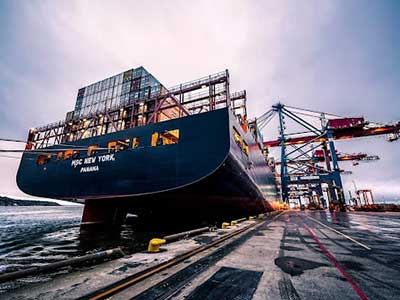 Earlier this week, President Donald Trump announced the reimplementation of a 25% tariff on all steel and aluminum imports into the United States, effective March 12, 2025. This policy marks a return to similar tariffs imposed during his first term in 2018.
Earlier this week, President Donald Trump announced the reimplementation of a 25% tariff on all steel and aluminum imports into the United States, effective March 12, 2025. This policy marks a return to similar tariffs imposed during his first term in 2018.
Countries Affected by the Tariffs
 The tariffs apply to all countries exporting steel and aluminum to the U.S., with no exemptions. Previously several countries were exempt including the countries of Argentina, Australia, Brazil, Canada, Japan, Mexico, South Korea, the European Union, Ukraine, and the United Kingdom. The White House stated that countries had previously used the exempt countries as loopholes which prevented the tariffs from being effective.
The tariffs apply to all countries exporting steel and aluminum to the U.S., with no exemptions. Previously several countries were exempt including the countries of Argentina, Australia, Brazil, Canada, Japan, Mexico, South Korea, the European Union, Ukraine, and the United Kingdom. The White House stated that countries had previously used the exempt countries as loopholes which prevented the tariffs from being effective.
Key suppliers impacted include:
- Canada: The largest exporter of both steel and aluminum to the U.S.
- Brazil: A significant steel supplier.
- Mexico: A major exporter of steel and aluminum.
- South Korea: Notable for its steel exports.
- Japan: Another key steel exporter.
These countries, among others, will face the 25% tariff on their metal exports to the U.S. The tariffs are expected to stack on pre existing tariffs and will have heavy impacts on Canada especially.
Impact on American Citizens
 The reimposed tariffs are expected to have several effects on American consumers and businesses:
The reimposed tariffs are expected to have several effects on American consumers and businesses:
- Increased Prices: Products that require steel and aluminum, such as automobiles, appliances, and canned goods, may see price hikes as manufacturers pass on the increased costs of raw materials to consumers.
- Higher Manufacturing Costs: U.S. manufacturers that rely on imported metals could experience elevated production expenses, potentially leading to reduced profit margins or further price increases for consumers.
- Potential Job Losses: Industries that depend heavily on steel and aluminum might face financial strain due to higher material costs, possibly resulting in layoffs or slower job growth.
- Retaliatory Tariffs: Affected countries may impose their own tariffs on U.S. exports in response, which could harm American businesses that rely on international markets.
 While the administration argues that these tariffs will bolster domestic metal production and protect national security, critics contend that the broader economic consequences could outweigh these benefits. As the policy unfolds, its full impact on the U.S. economy and its citizens will become clearer.
While the administration argues that these tariffs will bolster domestic metal production and protect national security, critics contend that the broader economic consequences could outweigh these benefits. As the policy unfolds, its full impact on the U.S. economy and its citizens will become clearer.
The tariffs will very likely not have the intended effect of reshoring American manufacturing, because as mentioned in our previous post, there is a massive skill gap in the U.S. manufacturing sector.
Simply put, there isn’t enough labor currently trained to keep up with the deficit domestically, and the economic and cultural trends aren’t shifting to shorten that deficit. Also, higher wages means that it is still in most cases cheaper to outsource the production of goods to other countries.
If you need help getting your product sourced cost effectively to mitigate the effects of the tariffs, contact us now! Our team of experts will help you source from verified manufacturers and negotiate the best price on your behalf.
